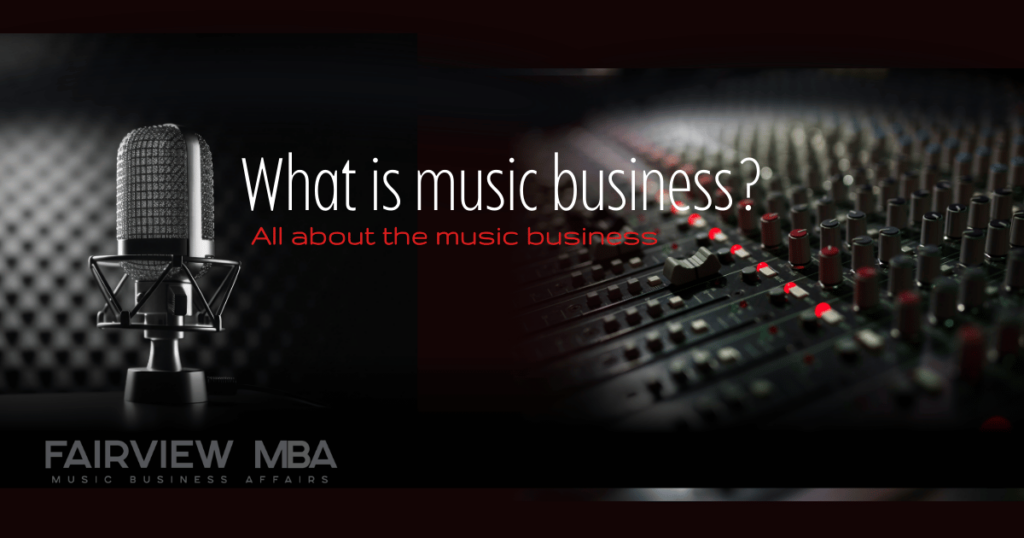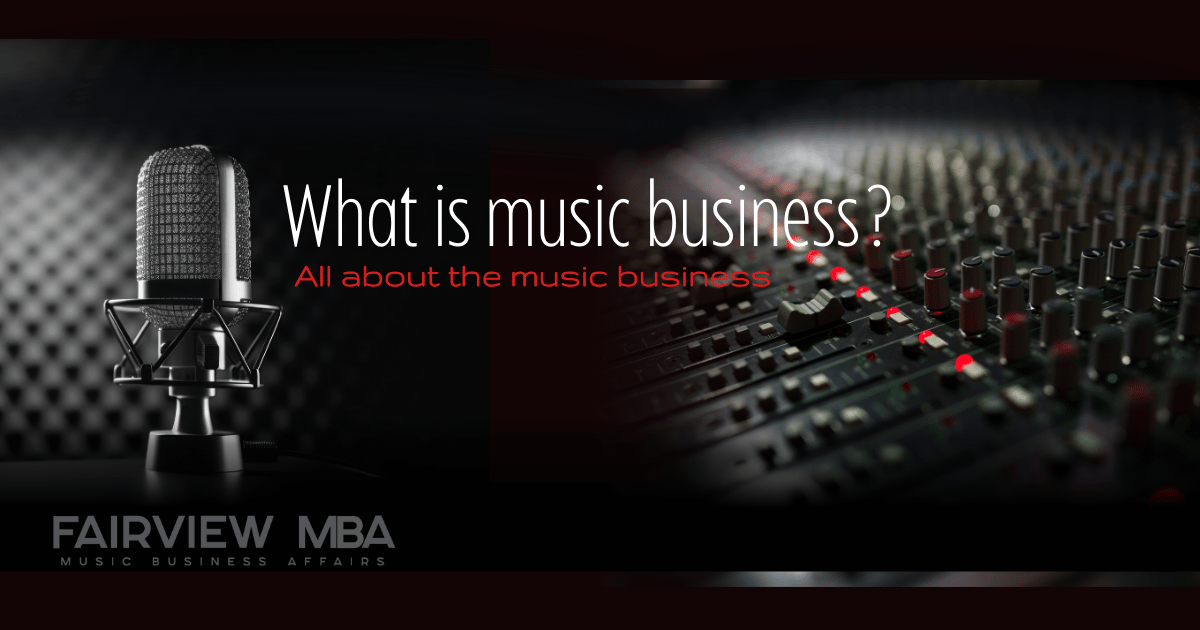What is music business? all about the music business
The term "music business" might sound straightforward, but it encompasses a vast and dynamic world where creativity meets commerce. If you’ve ever wondered what makes your favorite songs reach your ears or how artists turn their talents into profitable careers, you’re stepping into the realm of the music business. This article explores the ins and outs of the music industry, breaking down its key components, career opportunities, and the evolving landscape shaped by technology and innovation. Whether you're an aspiring artist, producer, or entrepreneur, understanding the music business is your first step toward success.
At its core, the music business refers to the commercial ecosystem that surrounds the creation, distribution, and monetization of music. It’s where art meets strategy, blending the talents of musicians with the expertise of managers, marketers, and distributors. The music industry isn’t just about recording songs—it’s a multi-billion-dollar global enterprise that includes everything from live performances to streaming platforms.
Historically, the music business was dominated by record labels, radio stations, and physical sales of vinyl, cassettes, and CDs. Today, it’s a digital-first industry, with platforms like Spotify, Apple Music, and YouTube driving revenue. According to the International Federation of the Phonographic Industry (IFPI), global recorded music revenues reached $28.6 billion in 2023, a testament to the industry’s resilience and adaptability. So, what is the music business? It’s the engine that powers your playlists, concerts, and even the royalties artists earn when their songs go viral on TikTok. Let’s break it down further.
Key Components of the Music Business
The music business is a complex web of interconnected sectors. Here are the primary pillars that keep it running:
1. Music Creation and Production
Every song starts with creativity. Songwriters, composers, and producers form the backbone of music production. This stage involves writing lyrics, composing melodies, and recording tracks in studios. Advances in technology, like digital audio workstations (DAWs) such as Ableton Live and Logic Pro, have democratized music production, allowing independent artists to create professional-quality work from home. Producers play a critical role in shaping a song’s sound, often collaborating with artists to refine their vision. For those interested in a music career, learning production skills can open doors to lucrative opportunities.
2. Record Labels and Artist Management
Record labels have long been the gatekeepers of the music business. Major labels like Universal Music Group, Sony Music, and Warner Music sign artists, fund recordings, and handle distribution. In return, they take a significant share of the profits. Independent labels, on the other hand, offer more creative control but often lack the financial muscle of their major counterparts. Artist managers are equally vital. They guide musicians through contracts, bookings, and branding, acting as the bridge between talent and the music industry. A good manager can turn a local act into a global superstar.
3. Distribution and Streaming
Once a song is ready, it needs to reach listeners. In the past, this meant physical distribution through stores. Today, digital distribution dominates, with platforms like DistroKid and TuneCore enabling artists to upload their music to streaming services. Streaming now accounts for over 67% of global music revenue, per IFPI data, making it a cornerstone of the modern music business.
4. Live Performances and Touring
Concerts and tours are a major revenue stream in the music industry. From small gigs to stadium shows, live events connect artists with fans while generating income through ticket sales, merchandise, and sponsorships. For many musicians, touring is more profitable than streaming royalties, especially since streaming payouts are often pennies per play.
5. Music Publishing and Royalties
Music publishing ensures songwriters and composers get paid for their work. Whenever a song is played on the radio, streamed online, or used in a TV ad, royalties are generated. Organizations like ASCAP, BMI, and SESAC collect and distribute these earnings. Understanding publishing is crucial for anyone building a music career, as it’s a steady income source even if you’re not performing.
How the Music Business Has Evolved
The music business has undergone seismic shifts over the decades. Let’s explore its evolution and what it means for today’s artists and professionals.
The Analog Era: Vinyl and Radio
In the 20th century, the music industry revolved around physical formats. Vinyl records, cassettes, and CDs were sold in stores, and radio DJs held the power to break new artists. Record labels controlled the market, often dictating terms to musicians.
The Digital Revolution: MP3s and Piracy
The late 1990s brought disruption with the rise of MP3s and file-sharing platforms like Napster. Piracy slashed profits, forcing the music business to adapt. This era birthed iTunes, which introduced legal digital downloads and reshaped how music was consumed.
The Streaming Age: Spotify and Beyond
Today, streaming rules the music industry. Services like Spotify, Apple Music, and Tidal offer instant access to millions of songs for a monthly fee. While this has boosted accessibility, it’s sparked debates about fair pay—artists often earn fractions of a cent per stream. Still, streaming has leveled the playing field, allowing indie artists to compete without label backing.
Social Media and Viral Success
Platforms like TikTok and Instagram have transformed music marketing. A single viral video can catapult an unknown artist to fame overnight, as seen with Lil Nas X’s “Old Town Road.” The music business now relies heavily on social media trends, making digital savvy a must for success.
Career Opportunities in the Music Business
Dreaming of a music career? The music business offers diverse roles beyond performing. Here are some paths to consider:
1. Artist or Performer
The most visible role, artists create and perform music. Success requires talent, persistence, and a knack for self-promotion in today’s DIY landscape.
2. Music Producer
Producers craft the sound of a track, blending technical skills with creativity. It’s a high-demand job in the music industry, with top producers earning six figures per project.
3. Music Manager
Managers handle the business side for artists, negotiating deals and planning tours. It’s a role for those who love strategy and networking.
4. A&R (Artists and Repertoire)
A&R reps scout talent for labels, bridging the gap between artists and the music business. A keen ear and industry connections are key.
5. Music Marketing and PR
Marketers promote artists through campaigns, social media, and press. It’s a fast-paced field blending creativity and analytics.
6. Sound Engineer
Engineers perfect the audio quality of recordings and live shows. Technical expertise can lead to a rewarding music career.
Challenges in the Music Business
The music industry isn’t all glamour. Here are some hurdles professionals face:
Low Streaming Royalties
Despite streaming’s dominance, payouts are slim. Artists need millions of streams to earn a living wage, pushing them to diversify income through tours and merch.
Oversaturation
With tools like GarageBand and SoundCloud, anyone can release music. Standing out in a crowded market is tougher than ever.
Contract Pitfalls
Unfavorable label deals can trap artists in long-term contracts with little profit. Education about the music business is essential to avoid exploitation.
How to Succeed in the Music Business
Ready to break into the music industry? Here’s how to thrive:
Build a Brand: Create a unique identity across platforms like Instagram and YouTube.
Network: Connect with producers, managers, and peers at events or online.
Learn the Business: Study contracts, royalties, and marketing to protect your interests.
Leverage Technology: Use streaming and social media to reach fans directly.
Stay Persistent: Success rarely comes overnight—keep refining your craft.
The Future of the Music Business
What’s next for the music business? Trends like artificial intelligence (AI) are already shaping it. AI tools can compose music, analyze listener preferences, and even generate vocals, raising questions about creativity’s role. Virtual reality concerts and blockchain-based royalties are also on the horizon, promising to redefine how music is experienced and monetized.Sustainability is another focus, with artists like Billie Eilish pushing for eco-friendly tours. As the music industry evolves, adaptability will remain key.
Why the Music Business Matters
The music business is more than an industry—it’s a cultural force that shapes trends, emotions, and economies. Whether you’re an artist dreaming of stardom or a professional eyeing a music career, understanding its mechanics is your ticket to success. From studios to streaming, every note you hear is backed by a complex, ever-changing system. So, what is the music business? It’s the heartbeat of music itself, pulsing with opportunity for those bold enough to join it.



